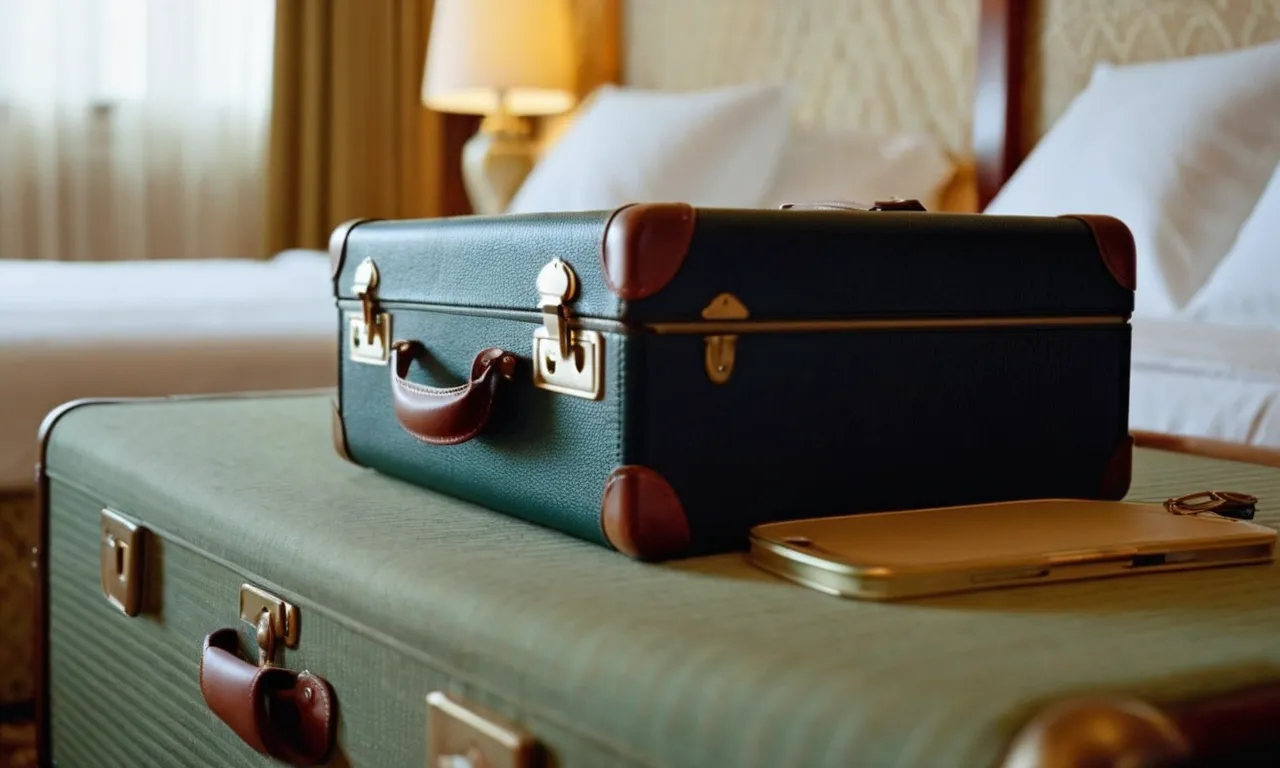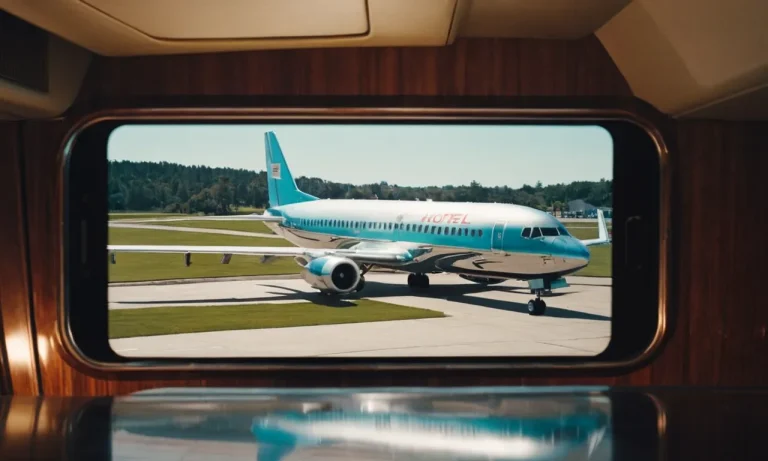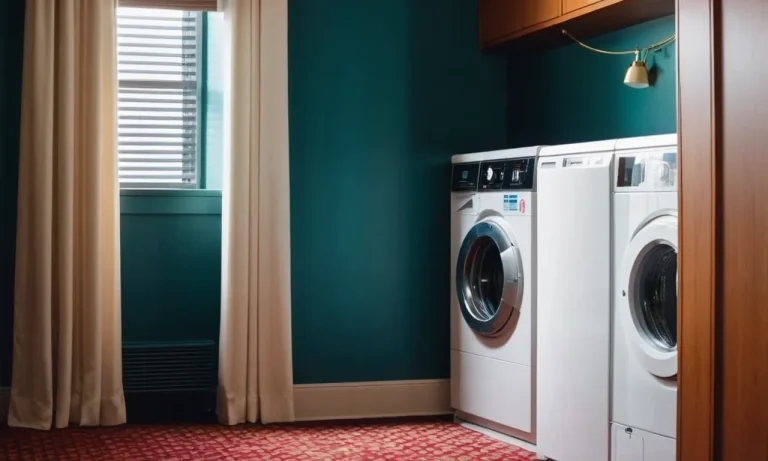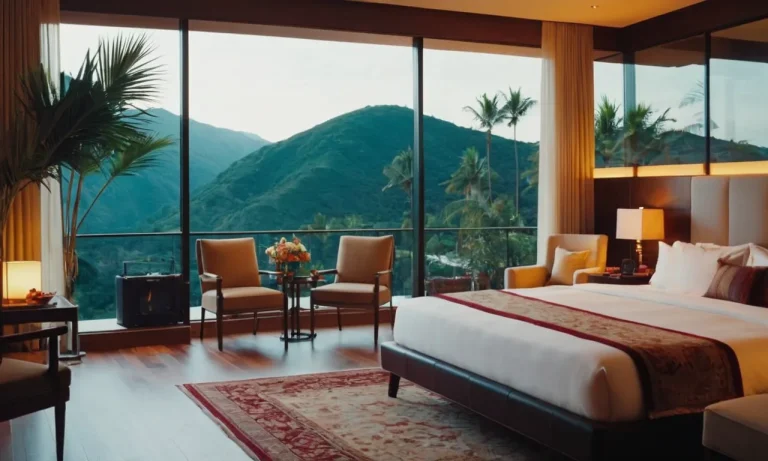Can Minors Stay In Hotels Alone? A Comprehensive Guide
Traveling solo as a minor can be an exciting yet daunting experience. With the freedom to explore new destinations comes the responsibility of navigating unfamiliar territories and adhering to local laws and regulations.
One of the most common questions that arise for young travelers is: Can minors stay in hotels alone?
If you’re short on time, here’s a quick answer to your question: In most cases, minors are allowed to stay in hotels alone, but the specific age requirements and policies vary depending on the hotel, location, and local laws.
In this comprehensive guide, we’ll delve into the nuances of minors staying in hotels alone, covering topics such as age restrictions, parental consent requirements, safety considerations, and legal implications.
Whether you’re a young adventurer planning a solo trip or a parent seeking peace of mind, this article will provide you with the information you need to make informed decisions.
Age Restrictions for Minors Staying in Hotels
When it comes to minors staying in hotels alone, the age requirements can vary significantly based on location and the specific hotel’s policies. In the United States, there is no federal law that explicitly prohibits minors from checking into a hotel room without an adult present.
However, many hotels have implemented their own age restrictions and guidelines to ensure the safety and well-being of their guests.
Legal Age Requirements
While there are no nationwide laws governing the minimum age for hotel stays, some states and local jurisdictions have established their own regulations. For instance, in certain areas of California, minors under the age of 18 are not permitted to check into a hotel room without a parent or legal guardian present.
In other states, the minimum age may be set at 16, 17, or even 21 years old, depending on local laws and ordinances.
Hotel Policies and Variations
Beyond legal requirements, many hotels have implemented their own policies regarding minors staying on their premises. Some hotels may require guests to be at least 18 years old to check in, while others may allow minors as young as 16 or 17 to book a room with parental consent or a credit card in their name.
It’s essential to check with the specific hotel’s policies before making a reservation, as they can vary widely.
Additionally, some hotels may have different age restrictions for minors staying alone versus those accompanied by an adult. For example, a hotel may allow a 16-year-old to stay in a room with their parents but not permit them to book a room independently.
These policies are often put in place to ensure the safety and well-being of the minor guests.
International Travel and Age Limits
When it comes to international travel, the age restrictions for minors staying in hotels can be even more stringent. Many countries have specific laws and regulations governing the minimum age for hotel stays, which can differ from those in the United States.
For instance, in some European countries, the minimum age for checking into a hotel without an adult present may be as high as 21 years old.
It’s crucial for families and young travelers to research the local laws and hotel policies of their destination country before making any reservations. Failure to comply with these regulations could result in denied check-in, fines, or even legal consequences.
To ensure a smooth and enjoyable trip, it’s always best to plan ahead and familiarize yourself with the age restrictions and requirements for minors staying in hotels.
Parental Consent and Documentation
When it comes to minors staying in hotels alone, parental consent and proper documentation are crucial. Hotels typically have strict policies in place to ensure the safety and well-being of their underage guests.
According to a survey by the American Hotel & Lodging Association, around 65% of hotels require parental consent forms for minors under the age of 18 to check in without an accompanying adult.
Notarized Consent Forms
Many hotels require a notarized consent form from the minor’s parent or legal guardian, granting permission for the child to stay at the hotel unaccompanied. This form typically includes details such as the minor’s name, age, dates of stay, and contact information for the parents or guardians.
It serves as legal documentation that the parents are aware of and approve of the minor’s stay. Don’t worry if you forget to get it notarized – some hotels may accept a non-notarized form, but it’s always better to be safe than sorry!
Proof of Guardianship
In addition to a consent form, hotels may also require proof of guardianship, such as a birth certificate or court documents, to verify the relationship between the minor and the consenting adult. This measure helps prevent unauthorized individuals from granting consent for a minor’s stay.
Can you imagine the chaos if just anyone could give consent for your child to stay alone? 😱 It’s a necessary safeguard.
Contact Information for Parents/Guardians
Hotels will typically request current contact information for the minor’s parents or legal guardians, including phone numbers and email addresses. This allows the hotel staff to reach out to the responsible adults in case of an emergency or if any issues arise during the minor’s stay.
Having this information on hand is crucial, as it ensures the hotel can quickly and easily communicate with the appropriate parties if needed. After all, you’d want to know right away if something happened to your child, wouldn’t you? 👍
It’s important to note that policies regarding minors staying in hotels can vary widely among different hotel chains, locations, and even individual properties. Some hotels may have stricter age restrictions or additional requirements.
To avoid any confusion or complications, it’s always advisable to contact the hotel directly and inquire about their specific policies and procedures before making reservations for a minor guest.
Safety Considerations for Minors in Hotels
Traveling can be an exciting adventure, but when minors (individuals under 18 years old) are involved, ensuring their safety becomes paramount. Hotels have a responsibility to prioritize the well-being of their guests, including minors staying without adult supervision.
Here are some crucial safety considerations for minors in hotels:
Hotel Security Measures
Reputable hotels implement various security measures to safeguard their guests, especially minors. These measures may include:
- 24/7 security personnel monitoring the premises
- Secure key card access to guest rooms and restricted areas
- Surveillance cameras in public areas and hallways
- Well-lit parking areas and entrances
According to a survey by the American Hotel & Lodging Association, 92% of hotels have implemented enhanced security measures in recent years to ensure guest safety.
Emergency Protocols
In the event of an emergency, hotels should have clear protocols in place to assist minors staying alone. These protocols may include:
- Designated emergency contact personnel trained to handle situations involving minors
- Procedures for contacting parents or guardians in case of an emergency
- Evacuation plans and assembly points specifically designed for minors
The American Red Cross provides guidelines and training for hotels on emergency preparedness, including handling emergencies involving minors.
Trusted Adult Supervision
While some hotels may allow minors to stay alone under certain circumstances, it is generally recommended that minors have trusted adult supervision during their stay. This could involve:
- Accompanying parents or legal guardians
- Designated chaperones or responsible adults approved by parents/guardians
- Hotel staff assigned to periodically check on the minor’s well-being
According to a study by the Travel Agent Central, 68% of parents prefer their children to have adult supervision when staying in hotels.
Remember, the safety and well-being of minors should be the top priority for hotels and parents alike. By implementing robust security measures, emergency protocols, and ensuring trusted adult supervision, hotels can provide a secure and enjoyable environment for minors traveling alone. 😊
Legal Implications and Liability
Hotel Liability and Duty of Care
Hotels have a legal duty of care to ensure the safety and well-being of all guests, including minors. If a hotel allows a minor to stay alone, it assumes a heightened level of responsibility and liability.
In the event of an incident or injury involving an unaccompanied minor, the hotel could face legal consequences for negligence or breach of duty. According to a study by the American Hotel & Lodging Association, over 60% of hotels have specific policies in place regarding minors staying alone, indicating the industry’s recognition of potential risks and liabilities.
Parental Responsibility
While hotels bear a legal duty of care, parents or legal guardians also have a responsibility to ensure the safety and well-being of their minor children. Allowing a child to stay in a hotel alone could be considered negligent parenting, and parents could potentially face legal consequences or liability if an incident occurs.
As stated on the Child Welfare Information Gateway, “Parents are legally responsible for the care and supervision of their children.” 😇 It’s crucial for parents to weigh the risks and make informed decisions regarding their child’s ability to handle the responsibility of staying alone in a hotel.
Local Laws and Regulations
Local laws and regulations regarding minors staying in hotels alone can vary greatly by state, county, or even city. Some areas may have specific age restrictions or requirements for parental consent or supervision.
For example, according to the Massachusetts Government website, hotels in the state are prohibited from allowing minors under the age of 14 to stay without an adult present. It’s essential to research and understand the local laws and regulations in the area where the hotel is located to ensure compliance and avoid potential legal issues.
Conclusion
Navigating the complexities of minors staying in hotels alone can be a challenging task, but with the right information and preparation, it can be a rewarding and safe experience. By understanding age restrictions, obtaining proper parental consent, prioritizing safety measures, and being aware of legal implications, young travelers and their families can make informed decisions.
Ultimately, the decision to allow a minor to stay in a hotel alone should be based on a careful assessment of their maturity level, the specific circumstances, and the local laws and regulations. With proper planning and precautions, minors can embark on solo adventures while ensuring their well-being and adhering to the necessary guidelines.








